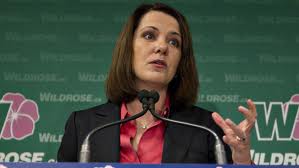When you are two or three time zones away from Ottawa — as B.C. Premier Christy Clark and Alberta Premier Alison Redford are most days — it is easy to dismiss the place.
From this distance, Ottawa isn’t just insular and puffed up with its own importance. When you are thousands of kilometres away, Ottawa is essentially irrelevant. It is the source of irritation, but not much in the way of government; it’s a place where a lot gets said, but far less gets done. Premiers, mayors and city councillors matter much more to people’s lives out here. MPs don’t.
That’s why, one surmises, premiers like Redford and Clark weren’t as outraged as their counterparts in other provinces were about Prime Minister Stephen Harper’s recent take-it-or-leave-it approach to federal-provincial relations. You’re not getting the 6% increase in health-care funding we promised you, said Harper, and too bad if you don’t like it.
That set off a chorus of provincial outrage, and understandably so. But from Clark and Redford — two women who have been unenthusiastic about Harper’s style of governance in the past — nary a peep. They did not protest Harper’s distinctly Trudeaupian approach to the federation at all. If anything, their governments sounded nonplussed. It may be that Alberta and B.C. have kept their powder dry because they agree Ottawa is entitled to fund health care at a lower level than promised.
Or, perhaps, it may be — as my university chum Pete O’Neil recently opined in an excellent analysis of Redford and Clark — the two western-most premiers need Harper more than he needs them.
Redford and Clark, O’Neil wrote, share many things. Both are 46. Both won power in a leadership race, not a general election. And both, O’Neil writes, “have political pedigrees that make them suspect in the eyes of some elected and unelected small-c conservatives in both provinces who happen to be unwavering Harper backers.”
Clark first attracted accolades when she worked as an adviser to the Liberal government of Jean Chretien. She was considered someone with an impressive mind and a bright future. Redford was equally impressive: She was a senior adviser to former PC leader Joe Clark, and then went on to work as a legal advisor to the secretary-general of the United Nations.
Harper and his acolytes, however, don’t have much regard for anyone who has been associated with the federal Liberals, the UN or Clark. They also haven’t traditionally been seen as keenly supportive of powerful women, either.
If I were assisting either Clark or Redford, I’d give them slightly different advice, in three points.
One, between now and the election, you’ll never eliminate the challenge you are facing on the right, from Alberta Wildrose and the B.C. Conservatives.
Two, you are never going to get Harper to trust you — he doesn’t trust anyone.
Three, make these perceived weaknesses a strength. Fight for your province’s fair share against far-away Ottawa’s diktats. Fight in such a way that Wildrose and the
B.C. Tories are seen as the servants to Ottawa’s bureaucrats.
Fight so voters know you’ve put the west, and not Ottawa, first.
Remember, from this distance, Ottawa is the enemy.
Treat ’em as such.
Comments (0)


